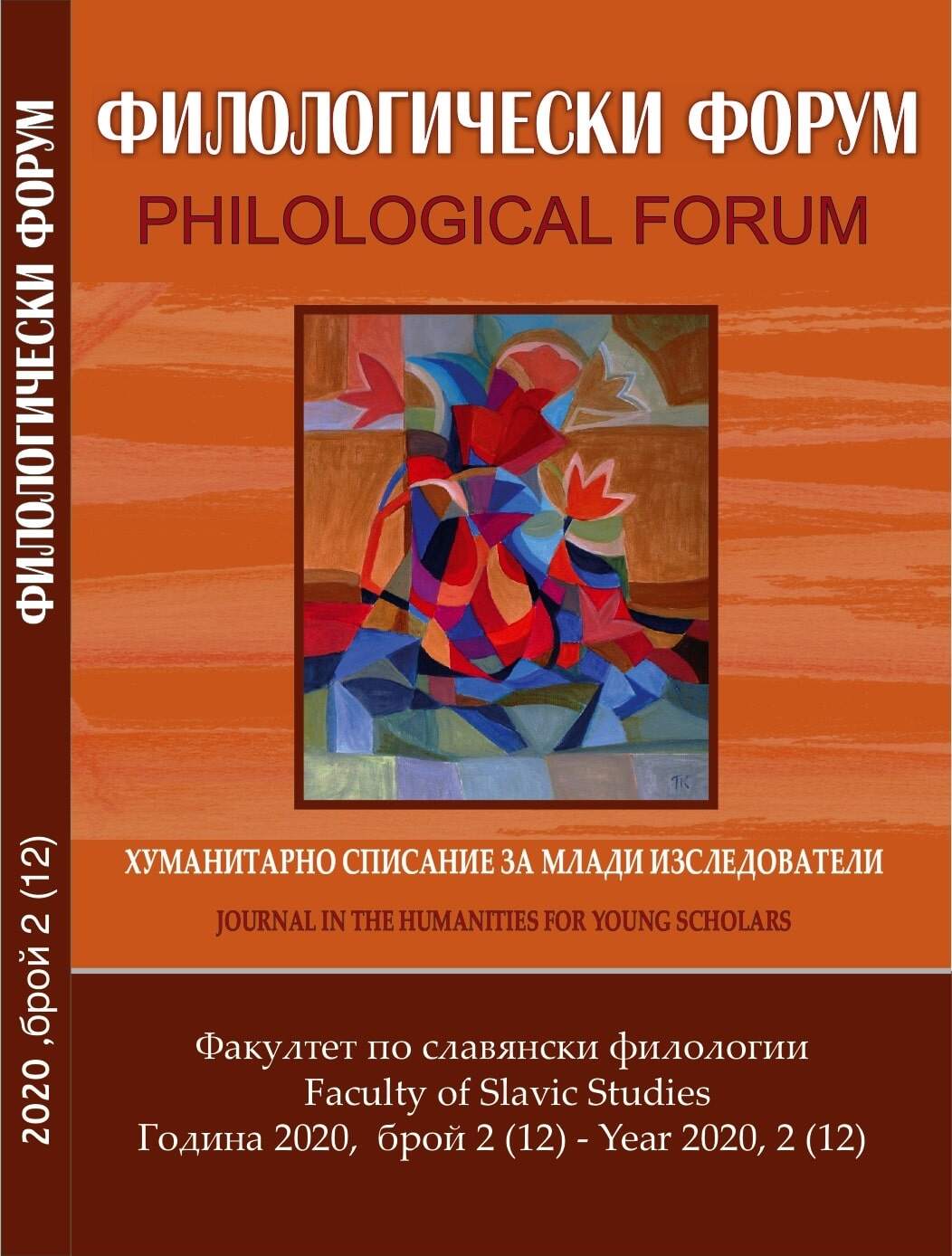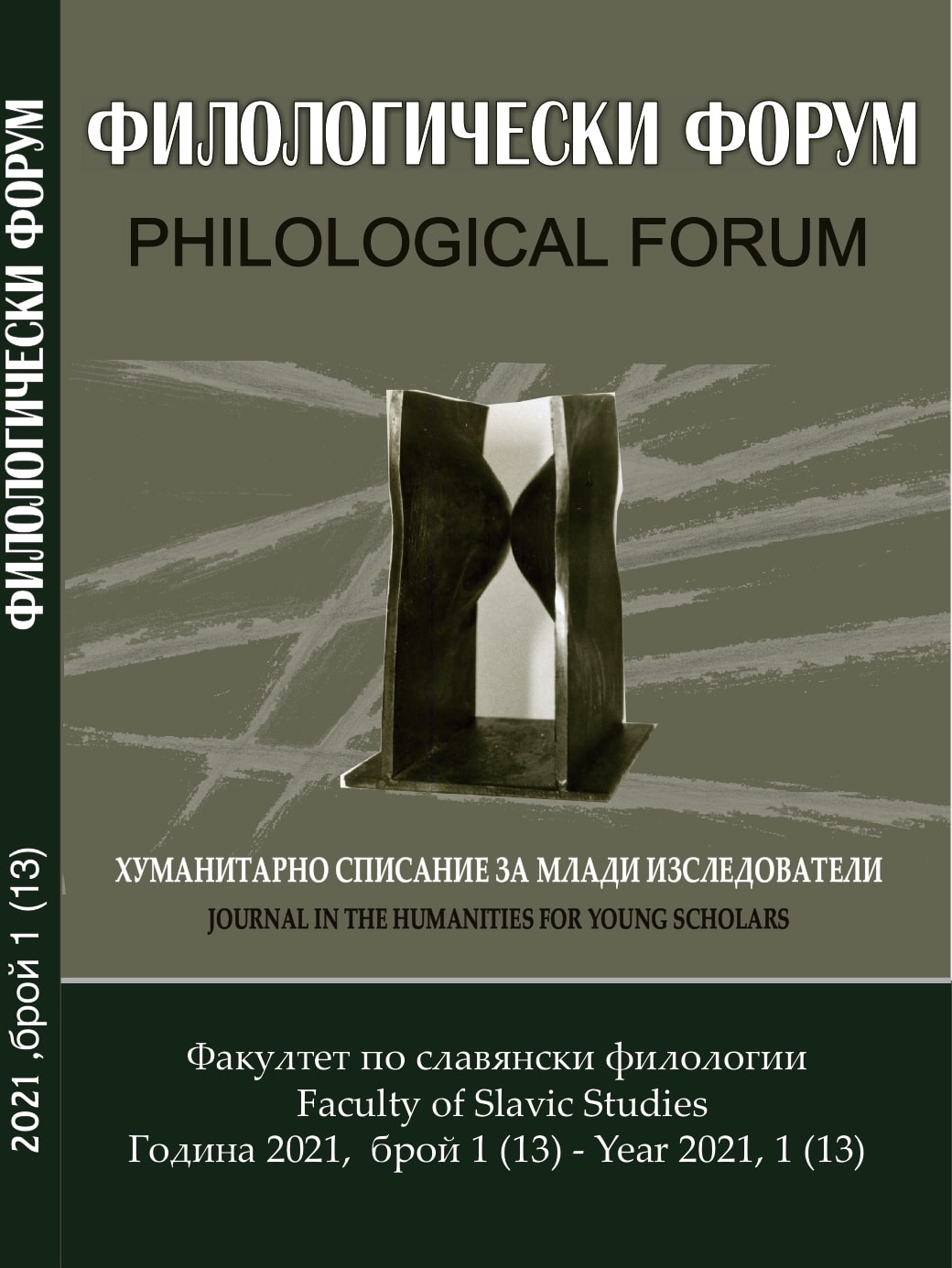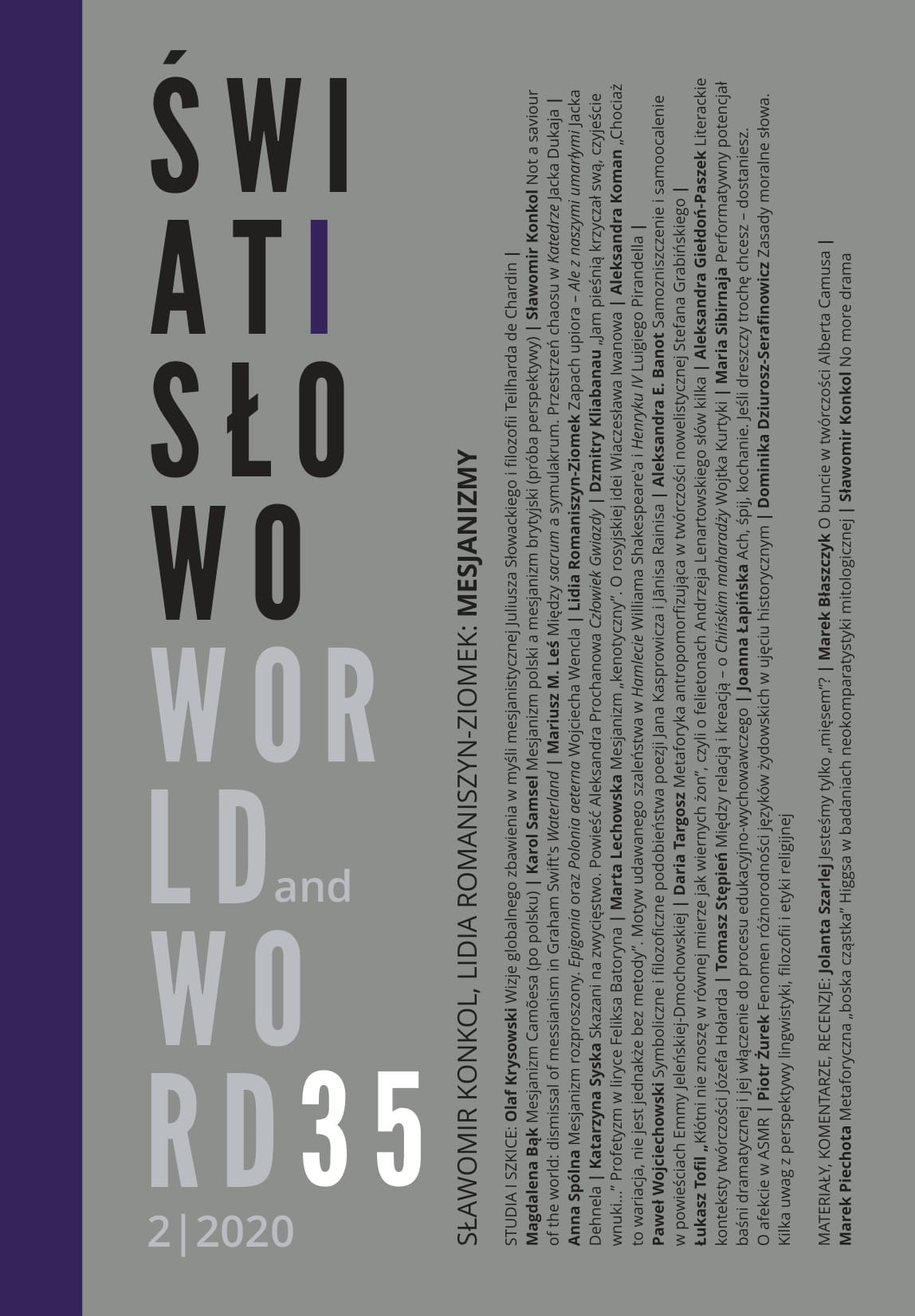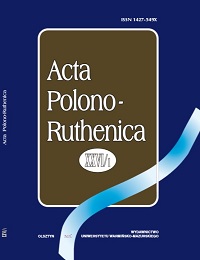
We kindly inform you that, as long as the subject affiliation of our 300.000+ articles is in progress, you might get unsufficient or no results on your third level or second level search. In this case, please broaden your search criteria.



This text examines the Polish literature of the Holocaust created between 1939 and 1989. The article outlines the main literary trends characterising the brief, yet dynamic period of the World War II and the Polish People’s Republic and emphasizes the inherent connection between politics and literature in the representation of such dramatic and tragic events, as well as the different commemorative strategies and practices in Polish society and literature.
More...







The Life of St Anthony the Great is the key text of Christian monasticism. As such, it contains the foundation of Christian ascetic terminology. It can be assumed that its Old Slavonic translations rendered this terminological apparatus into the Slavonic context. This paper aims at discussing the translations of one of the keywords denoting ‘thought’ in ascetic literature – λογισμός. The translations are situated in a larger context and additional examples from the Classical corpus of Old Church Slavonic texts are adduced.
More...
Feigned madness is a motif that – with varying frequency – returns in literary texts. It is usually a carrier of important metaphors, such as: search for truth, escape from reality or conscious rejection of routine. Moreover, it seems to have an exceptional interpretative potential in dramas as it also symbolises a performative treatment of existence and an awareness of fiction which directs the poetics of the drama towards the meta-theatre. The author of this article considers these issues in relation to the titular characters of two dramatic masterpieces of world literature: Hamlet by William Shakespeare and Henry IV by Luigi Pirandello. Both characters, for various reasons, decide to hide their true psychological condition under the image of a madman, which, interestingly, confirms their sophistication and intellect. Putting on the mask of a madman guarantees the privilege of unpunished violation of conventions and established orders, hated by individuals such as Hamlet or Henry IV. This rebellion and emancipation lead to the final defeat of these characters, who, however, dominate over the others, since, unlike other actors who dispassionately play roles that have been imposed to them, they choose their roles, and – most importantly – they are aware that they are playing.
More...
In this paper, I present some directives concerning the ethical use of speech and conversation. I focus on three areas – linguistics, philosophy and religion – and moral rules elaborated there with regard to what should and what should not be revealed by words. From the point of view of linguistics, I analyse modern principles of politeness and maxims of conversation. From the point of view of philosophical reflection, I consider ancient ethics of speech, and in particular: the three sieves of Socrates, rhetoric (lat. ars bene dicendi), and the Aristotelian golden mean. From the point of view of religion, I show the moral rules for words in Buddhism, Judaism, Christianity, Confucianism, and the Toltec faith.
More...
British messianism and British millenarianism evolving between 1650 and 1800 (according to Richard H. Popkin) cannot be simply transferred into the ideas of Polish messianism and Polish millenarianism; however, the protocol of differences seems inspiring enough to open a space for appropriate ideological and personal comparisons. In this study I have attempted to bring closer together Kazimierz Brodziński’s concept of the ‘Slavic antiquity’ confronted with Samuel Richardson’s ‘Anglo-Saxon antiquity;’ I also collided with each other Gilberte Cheyne’s concept of mystical somatism and the Genesis concept of the body and corporeality developed by Juliusz Słowacki (there are more similarities in this case – for example the vision of Cheyne’s ‘Paradise of the Faithful’ and Słowacki’s ‘Solar Jerusalem’). Polish messianism, in contrast to the British one, tends to deterritorialize the category of the nation and replace concepts of this sort with a project of embodied, instantiated eschatology, verbalized among others in Zygmunt Krasiński’s About the Position of Poland from the Divine and Human Vantage Point. In contrast to British messianism, scientific or semi-scientific, the Polish one has the potential to generate a system, is poetic and freely dialectical in accordance with the principle loosening reflection: disputandi more, asserendi more. This is evident in various and at first glance unexpected juxtapositions: including the concept of messianism as a liberating, decolonizing project in George Berkeley’s and Cyprian Norwid’s55 G. Herling-Grudziński, Wyzwolenie od romantyzmu?, [w:] tegoż, Recenzje, szkice…, s. 430.Mesjanizm polski a mesjanizm brytyjski | 69thinking, or the messianic idea of reading the Bible in the mirabilistic, irrational key of August Cieszkowski (God and Palingenesis) as well as in the anti-mirabilistic, rational key of Matthew Arnold (God and the Bible).
More...
The paper presents the key theses of Vyacheslav Ivanov’s concept of the national idea, both in a general (concerning every nation) and a specific (concerning the Russian nation) perspective. The starting point are the youthful intuitions of the philosopher, who from the very beginning was not able to accept nationalist views of the great minds of his times. This rejection of nationalism (understood as national egoism) becomes the basis for formulating the religious national idea (for every nation); against this background Ivanov perceives Russia as an exceptional country at the beginning of 20th century. The philosopher claims that Russia has an extraordinary historical mission, but he also sees potential obstacles in realizing this mission.
More...
The book Prehistoria – średniowiecze – romantyzm. W kręgu indoeuropejskich tematów mitologicznych: od Dumézila do Słowackiego [Prehistory – Middle Ages – Romanticism. Indo-European Mythological Themes from Dumézil to Słowacki] by Dariusz Seweryn proves that the methodology suggested by the author can be applied to the Romantic literature. It reveals both the strategies that Romantic authors are fully aware of as well as those which remain unrealised, but refer to the mythological context that goes back in time to the Indo-European ‘prehistory’ (this is Higgs’ ‘God particle’). Seweryn also proves that the antic phrase Omnes viae Romam ducunt has above anything else a propaganda, Latino-centric significance. At least some roads lead from India via Iran (also) to Rome, but Romans did not realize that their customs and literature were influenced by a tradition that originated in a remote part of the world and was significantly older than ‘the City’ itself. Seweryn’s book is certainly one of the best I have studied and reviewed in the last ten years!
More...
Specific art practices, which include performance, are especially prevalent in popular culture at the turn of the 20th and 21st century. The concept of ‘performance’ means an action in the process of which creation involves a new experience both for the performer of the action and for the recipient. However, it is necessary to distinguish performance as a type of cultural action, dramatization, and performative potential of a work, creating conditions for influencing the consciousness of a person who, when perceiving a work, becomes a full participant in a creative act. Modern fairy-tale plays written by playwrights based on well-known works or the authors’ own dramatic tales have great performative potential. They connect the game principle, the performativity of a fairy tale, capable of activating empathy, influencing the child’s consciousness through the magic of the word, and the performance of the drama, the goal of which is to involve the young viewer in the show. At the same time, the theatrical performance of fairy-tale plays and the metatheatrical techniques involved in them have a significant visual impact on the young audience, which also contributes to the performative dialogue. The moralizing orientation of modern fairy-tale plays, reflecting the current moral and ethical problems of the society, increases the efficiency of the educational process, and contributes to the fulfilment of modern didactic tasks.In this article, based on the Russian playwright Anna Bogacheva, an attempt is made to identify those features of modern fairy-tale plays that convey their performative character and didactic potential.
More...
Artykuł przybliża sylwetkę i twórczość ideowo-artystyczną Wladimira Kotlarowa (Tołstego), jednej z najbardziej kontrowersyjnych postaci w środowisku emigrantów rosyjskich w Paryżu lat 1980–2013. Jego specjalnością były skandalizujące happeningi z przesłaniem patriotyczno-anarchizującym oraz mail-art i money-art. Drogą analizy treści naniesionej na koperty, przedmioty użytkowe, kompozycje z banknotów, a także tekstów zamieszczonych w wydawanych przez Tołstego almanachu „Muleta” i gazecie „Wieczernij zwon” ustalono, że prezentowany tam światopogląd, nazywany vivrystycznym i eurazjatyckim, zawiera jedynie fragmentaryczne i nad wyraz swobodne odniesienia zarówno do dorobku Eurazjatów lat międzywojennych, jak i współczesnych kontynuatorów ich myśli. Tołsty wykorzystał eurazjatyzm, łącząc niektóre jego elementy; kolaż – tak w formie, jak i treści – stał się jego metodą twórczą, dzięki której zasłynął jako artysta konceptualistyczny.
More...
Artykuł stanowi analizę eseistyki Piotra Wajla (1949–2009) pod kątem problemu mapy. Wytyczając w tekście utworu Karta rodiny mapę ZSRR, autor – emigrant urodzony w Związku Radzieckim – dokonuje próby rekonstrukcji własnej tożsamości. Problematyka kartografii literackiej odniesiona zostaje ponadto do analizy wyobraźni przestrzennej twórcy, który często sięga po figurę mapy bądź słownictwo geograficzne przy opisie zjawisk niekoniecznie konotujących asocjacje spacjalne. Metodologią wyko-rzystaną w artykule jest głównie geopoetyka, a zwłaszcza są to prace dotyczące literackiej kartografii.
More...
Niniejszy artykuł poświęcony został analizie porównawczej klas leksyki, podlegających opuszczeniom w polskich wersjach lektorskich dwóch filmów rosyjskich: filmu katastroficznego Metro A. Miegierdziczewa oraz dramatu Niemiłość A. Zwiagin-cewa. Badania ilościowe i jakościowe dowiodły, że najczęściej redukcji podlegają par-tykuły i wykrzykniki nacechowane emocjonalnie i ekspresywnie, powtórzenia, rzadziej – wulgaryzmy. Zaobserwowano różnice w częstotliwości opuszczeń adresatywów oraz formuł grzecznościowych, także zdań z prymarną funkcją informacyjną. Wysnuto wnio-sek, że różnice te wynikają z cech gatunkowych filmów i podporządkowanej im strategii tłumaczy.
More...